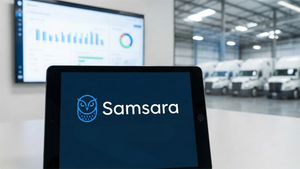MELBOURNE, Australia, February 27, 2023 (Newswire.com) - According to Applied Measurement, the industry leaders in measurement, humidity sensors are an essential component of various industrial and commercial applications. These sensors are used to measure the amount of moisture in the air or any other gas. Here, the experts share everything to know about humidity sensors.
Applied Measurement explains that humidity sensors come in different types, such as capacitive, resistive and thermal conductivity sensors.
Capacitive sensors are the most commonly used type of humidity sensors in industrial and commercial applications. These sensors consist of two plates and the amount of moisture in the air changes the dielectric constant between the plates. Applied Measurement explains that this change in capacitance is then measured and converted into humidity readings.
Resistive humidity sensors work by measuring the change in resistance of a material due to moisture absorption. These sensors are less common than capacitive sensors but they are known for their high accuracy and long-term stability, says Applied Measurement.
Thermal conductivity sensors measure the difference in the thermal conductivity of the air and the surrounding medium. These sensors are used in specialised applications, such as measuring the humidity in medical oxygen.
When choosing a humidity sensor for a specific application, Applied Measurement says it is essential to consider factors such as accuracy, response time, stability and environmental conditions. For instance, in high-temperature environments, it is essential to use sensors with high-temperature capabilities to ensure accurate readings.
Applied Measurement points out that another crucial factor to consider is the calibration of the sensor. Calibration is the process of adjusting the sensor to ensure accurate readings. Most humidity sensors require regular calibration to maintain their accuracy. The frequency of calibration depends on various factors such as the type of sensor, environmental conditions and the required accuracy.
By choosing the right sensor, businesses can improve their operations, increase efficiency and reduce costs associated with inaccurate humidity measurements.
Explore the complete portfolio of products including flow meters and a new range of low cost data logger instruments, visit Applied Measurement online.
Contact Information:Applied Measurement
Marketing Manager
sales@appliedmeasurement.com.au
(03) 98745777
Original Source: Everything to Know About Humidity Sensors, According to Experts






